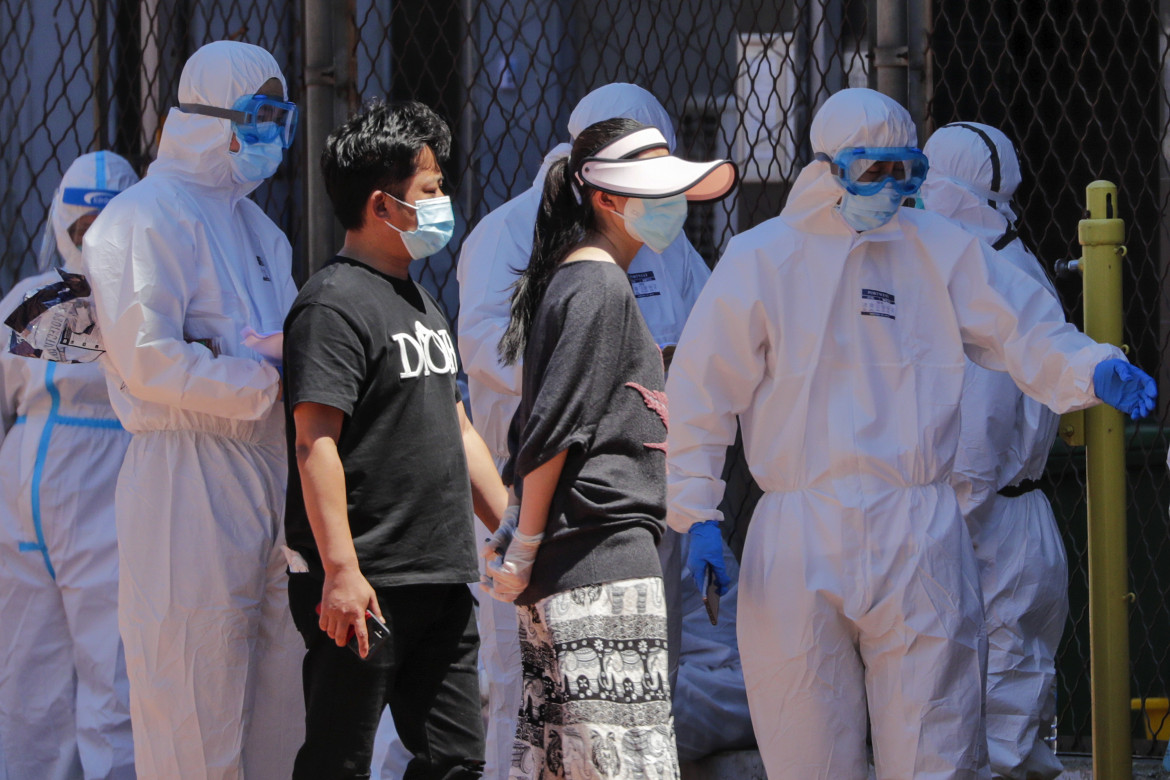Report
Beijing and the world fear a second wave
The world has turned its attention to China, seeking to avert the possible manipulation of data by authorities. But many of the accusations against Beijing have fallen apart under scrutiny.

After Wuhan, the attention of the Chinese authorities and the whole world is once again focused on a Chinese market. Now it’s the turn of the Xinfadi wholesale food market, the largest in Beijing, spread across 112 hectares on five floors in the Fengtai District, in the southern suburbs of Beijing. It supplies 90% of the fruits and vegetables consumed in the city, but also sells meat and fish. Xinfadi is said to be the source of a new coronavirus outbreak that has put China in a state of alarm. So far, there are 79 cases that can be traced back to the market, after more than 100,000 swabs have been taken.
One of the investigative directions being followed by the health authorities traces the contamination back to a shipment of salmon purchased at the Jingshen market to be resold at Xinfadi, but for now this is only a hypothesis. Some cases, also linked to Xinfadi, have also been detected in neighboring provinces. As a precaution, the authorities have closed 21 residential complexes in the Beijing districts of Fengtai and Haidian, and a total of 90,000 people have returned to de facto lockdown according to instructions received via smartphone. Until Thursday, Beijing had not recorded any new local transmissions for 55 days.
After its genome was sequenced in record time, the virus at the Xinfadi market appears to be different from the one that had been circulating during the first wave. It looks more like the European strain, but that doesn’t mean that the outbreak is a direct European import, as Wu Zunyou, epidemiologist at the National Centre for Disease Control and Prevention, explained. “Analyses of the virus strain in the US showed most of them came from Europe, or from Russia,” according to Wu, who said that “more information needs to be collected” to determine the source.
Wu told People’s Daily, the mouthpiece of the Chinese Communist Party, that he was concerned: “Beijing is facing explosive and concentrated outbreaks even though the national epidemic has basically been blocked.” Although the outbreak is worrying the authorities, its size is still too small for any talk about a “second wave.” However, the eyes of the world are focused on China, particularly in order to avert the possibility of manipulation of information by the authorities, accused of hiding the first coronavirus outbreak and thus contributing to making it impossible to contain.
A commission from the WHO is set to investigate this matter. However, many of the accusations against the Chinese government have ended up falling apart under scrutiny. For example, no one still believes the theory that the epidemic was already underway last August, put forward a week ago by a study published online by Harvard University, one which Trump has been working hard to spread among his supporters. An investigation by BBC journalists seems to have definitively dismantled the study, which in any case had not yet been accepted for publication by any scientific journal.
The research by Harvard was based on indirect signals to backdate the Wuhan outbreak. For example, using satellite images, researchers had observed an abnormal increase in the number of cars parked near Wuhan hospitals in August 2019 compared to a year earlier. In addition, a spike in searches for coronavirus-related terms (particularly “diarrhea symptoms”) on the Baidu search engine, the Chinese equivalent of Google, seems to have started well before the first official cases in December.
The use of indirect data to estimate social phenomena is not uncommon. For example, economists are accustomed to studying cargo ship traffic, as it is considered a good proxy of the level of international economic activity. And the searches for certain keywords on search engines and social networks are already being analyzed by epidemiologists in order to detect the spread of diseases and the peaks of flu seasons at an early stage.
However, as the BBC investigation showed, in the case of the coronavirus, the two pieces of evidence put forward failed to substantiate the theory. When counting the number of parked cars, the Harvard researchers did not take into account the presence of construction sites, covered lots and underground car parks, which render the task of comparing traffic levels over the span of one year impossible.
In addition, other search terms more directly related to the coronavirus but not analyzed by the researchers, such as “cough,” “fever” or “flu,” did not show any anomalous increase. It is likely that the Harvard researchers selected the most suggestive data to demonstrate the preconceived hypothesis of a Chinese cover-up, a fault that is typical of poorly conducted research. This is a typical example of what the world of research calls “cherry picking.”
Originally published at https://ilmanifesto.it/pechino-e-il-mondo-temono-una-seconda-ondata/ on 2020-06-16
